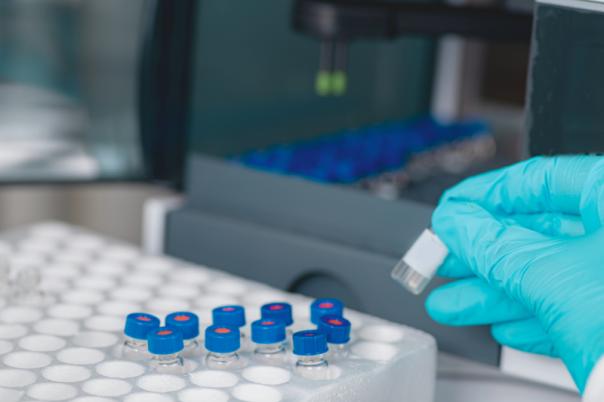Jordan Bye from Immunocore delivered a presentation on the challenges associated with low dosing and stability of biotherapeutic molecules, focusing on Immunocore's ImmTAX platform. ImmTAX molecules, are bispecific T-cell engagers, designed to enhance the immune system's ability to target and destroy cancerous or infected cells. These molecules consist of a T-cell receptor (TCR) and an effector function domain, enabling the immune system to recognise and eliminate cells that would otherwise evade detection.
Bye began by discussing the complexity of proteins and the importance of maintaining their stability despite changes in pH, temperature, and excipients. He highlighted the challenges formulation scientists faced in ensuring proteins remained stable within a specific subset of configurations.
The presentation then tackled the formulation development strategies for ImmTAX molecules. These strategies involve addressing common challenges such as physical and chemical stability, optimising pH, buffers, and excipients, and using various analytical methods to monitor unfolding, aggregation, and particle formation.
Bye also discussed the challenges of low dosing and drug delivery. Due to the high potency of ImmTAX molecules, dosing occurred at very low concentrations, sometimes as low as 0.2 micrograms. This introduced significant challenges in drug preparation and administration, including accurate dilution, prevention of drug loss due to surface adsorption, and precise quantification of the administered dose.
The impact of closed system transfer devices (CSTDs) was another key point. While CSTDs were essential for protecting healthcare workers from hazardous drugs and needle-stick injuries, their use with low-volume, potent drugs presents dose accuracy challenges. The dead volume within CSTDs could lead to significant drug retention within the device and potential underdosing or overdosing during subsequent dilutions.
Finally, Bye explained the quantification of drug dose using the Meso Scale Discovery (MSD) assay, which provides a sensitive method for measuring drug recovery at picomolar concentrations. This technique is crucial for ensuring accurate measurement of drug concentration post-administration, despite its sensitivity to dilution and pipetting errors.
In conclusion, Bye stressed that ImmTAX molecules represented a potent therapeutic platform which requires sophisticated formulation and delivery strategies due to their low dosing and stability challenges. The development process addressed common biotherapeutic stability issues alongside unique challenges related to drug delivery and analytical quantification.





